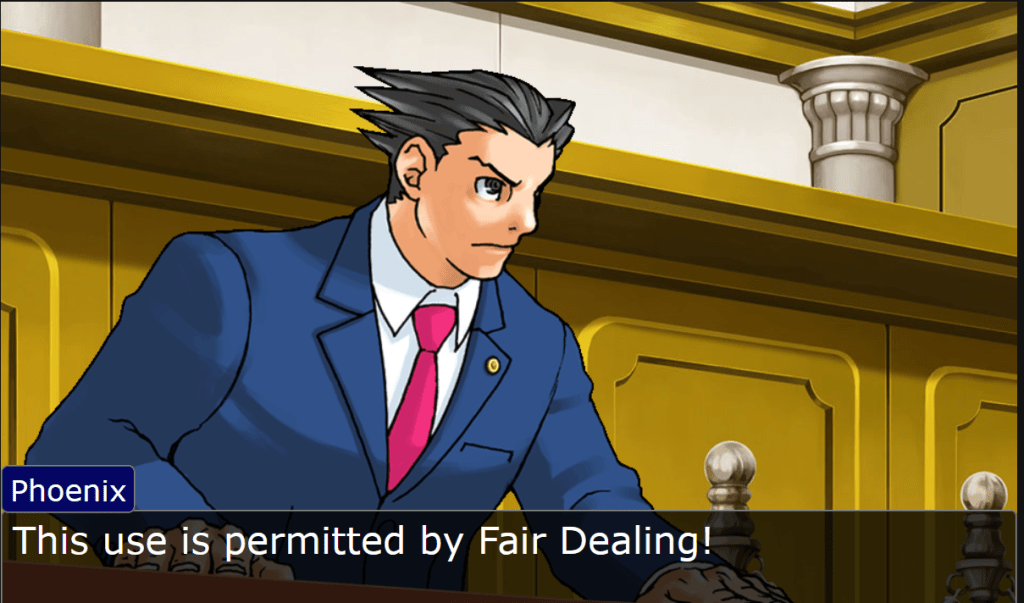§1 “Goblin Mode Gaslighting” and Fair Dealing
Last week I failed to recognize that it was Fair Dealing Week in Canada, despite the efforts of the Fair Dealing Works campaign from Universities Canada, Colleges and Institutes Canada (CICan), the Canadian Association of Research Libraries (CARL), the Canadian Alliance of Student Associations (CASA), the Canadian Federation of Students (CFS), the Canadian Association of University Teachers (CAUT) and the Canadian Internet Policy and Public Interest Clinic (CIPPIC). I will pledge to do better next year.
Michael Geist wrote a series of posts to celebrate Fair Dealing. His post from March 1st begins,
My Fair Dealing Week series of posts on Canadian copyright, fair dealing, and education concludes with a few thoughts on the role of fair dealing within Canadian universities and colleges. Copyright lobby groups have spent years perpetuating multiple myths, including the false notion that today’s fair dealing policies are largely a function of 2012 reforms (they actually stem chiefly from two decades of Supreme Court jurisprudence) and that fair dealing has resulted in universities refusing to licence content (prior posts have covered this disinformation, citing the millions spent on site licensing, transactional licensing , the disappearance of course packs, and the growth of open textbooks).
The reality – as noted in this week’s Law Bytes podcast features Western librarian Stephen Spong – is that fair dealing is both essential and fair, but also limited in the role it plays in providing access to course materials on university campuses. The evidence from the past decade leaves no doubt that universities spend more than ever on licensing materials despite the existence of fair dealing. Fair dealing is foundational to ensuring a fair copyright balance that benefits both creators and users, but it does not come close to a full substitute for licensing. What has replaced the Access Copyright licences are largely other licences, not fair dealing. The digital market now offers licences with far great flexibility that provide both access to works and the ability to use them as course materials. Access Copyright’s limited licence is dependent on obtaining the works in the first place and then sets limitations on how they can be further used. Simply put, the licence is not competitive with other licensing alternatives.
Canadian Copyright, Fair Dealing and Education, Part Six: A Fair Reading of Fair Dealing
On a related note, yesterday I learned of the Global Network on Copyright User Rights:
The Network was formed in 2011 by a group of leading copyright academics from around the world. The objective of the Network was originally framed in the Washington Declaration on Intellectual Property and the Public Interest, which called for “discussion of employing ‘open-ended’ limitations in national copyright legislation, in addition to specific exceptions.”
§2 Ace Attorney Objection Maker
IYKYK : https://objection.lol/

§3 The University of Winds is now on Ghost
Some of you might know that since the fall of 2016, I been writing and publishing a newsletter almost every Saturday morning called The University of Winds. This week I moved platforms from Tinyletter to Ghost.
You can subscribe and browse through its growing backfiles at: https://uofwinds.com/
§4 Ken Eklund on Magic
Speaking of The University of Winds, the newsletter and I got a shout-out from writer guy, game designer, and man of Magic, Ken Eklund on a recent episode of Ludogogy podcast:

Thanks Trevor H. for letting me know!
